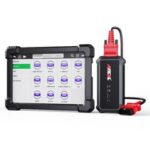Car repossession can feel like the end of a difficult chapter, but financially, it’s often not the final page. Many people mistakenly believe that once their car is repossessed, their financial obligations are over. However, you might still be responsible for certain costs even after the lender has taken back your vehicle. Understanding these potential financial implications is crucial.
Understanding Repossession Fees
When your lender repossesses your car, they typically incur costs to pick it up and store it. These repossession fees are generally passed on to you, the borrower. While lenders are entitled to recover these expenses, they must be reasonable. What constitutes “reasonable” isn’t a fixed amount and can be interpreted based on factors like the type of vehicle, the repossession method, and the location of the repossession. If you’re unsure about the fees charged, you have the right to request a detailed breakdown of all repossession costs from your lender. Reviewing this list can help you understand exactly what you’re being charged for.
Deficiency Balance or Surplus: The Sale Aftermath
After repossession, the lender will usually sell your car, often at auction. The money from this sale is used to reduce your outstanding loan balance. However, this is where many people encounter further financial obligations. If the sale price of the car doesn’t cover the remaining loan amount, including repossession fees, you may be required to pay the “deficiency balance.” This is the difference between what you still owed and what the car sold for, plus those repossession expenses.
For instance, imagine you owed $15,000 on your car loan, and after repossession and fees, this amount plus the fees totals $16,000. If the car is then sold for $12,000, you would owe a deficiency balance of $4,000 ($16,000 – $12,000). Lenders are legally obligated to sell the car in a “commercially reasonable manner.” If you suspect the sale price was unfairly low, it is advisable to seek legal counsel to understand your options.
Conversely, if your car sells for more than what you owe on the loan plus repossession costs, you are legally entitled to the surplus funds. Using the previous example, if the car sold for $18,000 instead of $12,000, the lender would first cover the $16,000 debt and fees, and then you would be entitled to receive the $2,000 surplus.
Know Your Rights and Seek Advice
It’s important to remember that your rights regarding car repossession can vary depending on your state laws. To gain a clearer understanding of your specific rights and protections, you can reach out to your state attorney general or your state consumer protection office. These resources can provide valuable information relevant to your location. Furthermore, consulting with a private attorney or a local legal services office can offer personalized advice and guidance based on your unique situation. Understanding what happens after your car is repossessed is vital to managing the financial consequences and protecting your rights.


